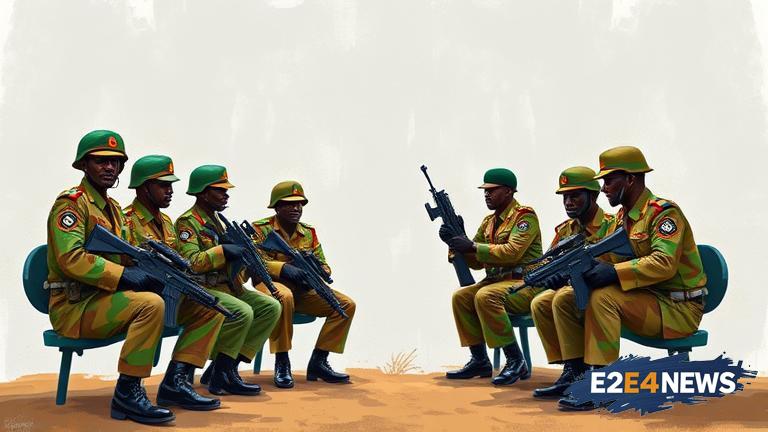The Chief of Defence Staff (CDS) has called on African militaries to strengthen their defence collaboration, emphasizing that it must go beyond mere dialogue. This statement was made during a recent meeting with top military officials from across the continent. The CDS noted that while dialogue is essential, it is equally important to translate discussions into concrete actions. African militaries face numerous security challenges, including terrorism, piracy, and border disputes, which require a unified and coordinated response. The CDS emphasized that defence collaboration is crucial in addressing these challenges and promoting regional stability. He also highlighted the importance of sharing intelligence, best practices, and resources to enhance the capacity of African militaries. Furthermore, the CDS encouraged African militaries to prioritize joint training exercises, capacity building, and equipment standardization. This would enable them to respond effectively to emerging security threats and protect their citizens. The CDS also stressed the need for African militaries to develop a common strategy to address the root causes of conflicts, such as poverty, unemployment, and social inequality. In addition, he emphasized the importance of promoting democratic governance, human rights, and the rule of law to prevent the escalation of conflicts. The CDS’ call for strengthened defence collaboration has been welcomed by many African military leaders, who recognize the need for a more coordinated approach to addressing regional security challenges. However, some experts have cautioned that implementing such collaboration would require significant investments in resources, infrastructure, and institutional capacity. Moreover, there are concerns about the potential risks of over-militarization and the need to balance security concerns with human rights and civilian protection. Despite these challenges, the CDS remains optimistic that African militaries can work together to build a more secure and stable continent. He has pledged to work closely with regional and international partners to support the development of African militaries and promote defence collaboration. The CDS has also emphasized the importance of leveraging technology, innovation, and research to enhance the capacity of African militaries. This includes the use of drones, cyber security, and artificial intelligence to improve intelligence gathering, surveillance, and response times. Moreover, the CDS has encouraged African militaries to develop partnerships with private sector companies and academic institutions to access new technologies and expertise. In conclusion, the CDS’ call for strengthened defence collaboration among African militaries is a timely and important reminder of the need for a more coordinated approach to addressing regional security challenges. While there are challenges to be addressed, the potential benefits of such collaboration are significant, and it is essential that African militaries work together to build a more secure and stable continent. The CDS’ emphasis on the need for concrete actions, joint training exercises, and equipment standardization is particularly noteworthy, as it highlights the importance of moving beyond dialogue and taking practical steps to enhance defence collaboration. Ultimately, the success of defence collaboration among African militaries will depend on their ability to work together, share resources, and develop a common strategy to address the complex security challenges facing the continent.
